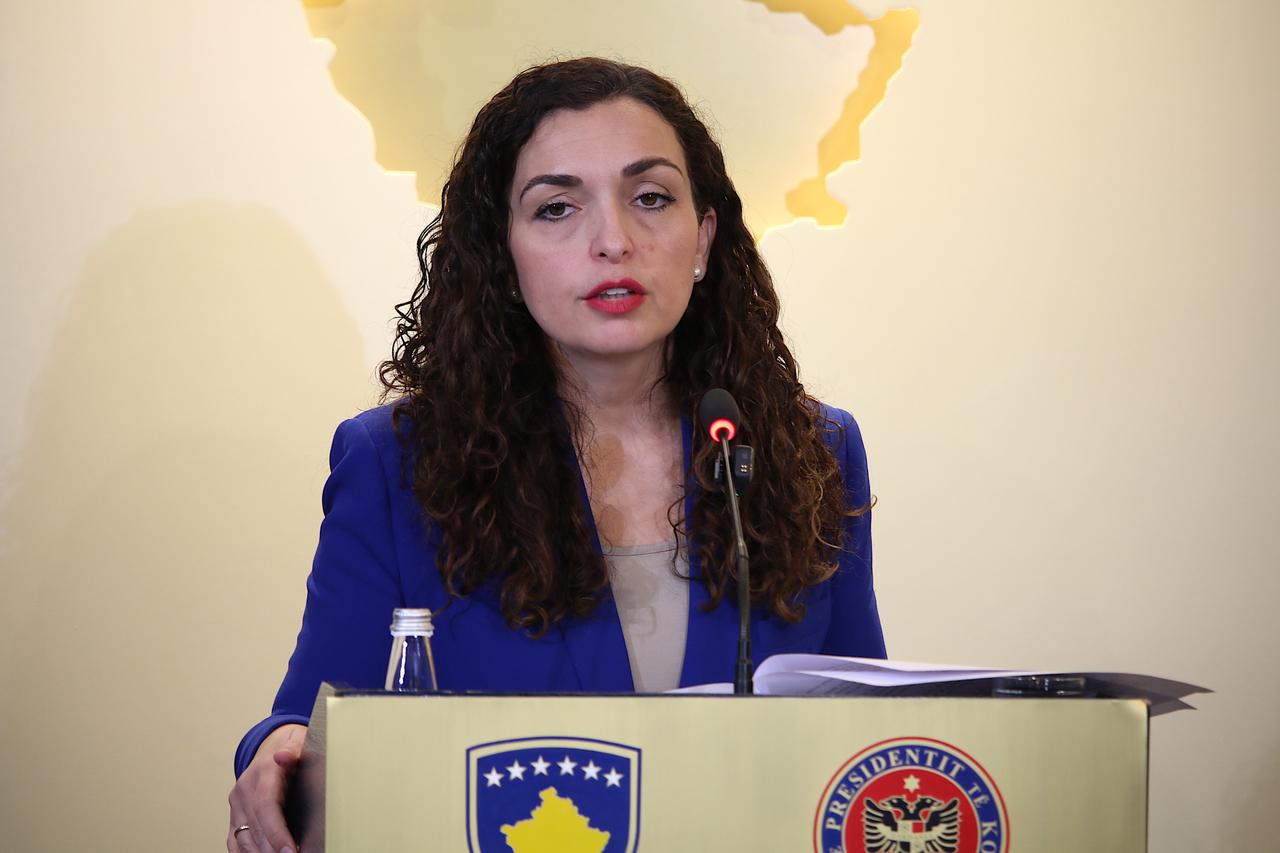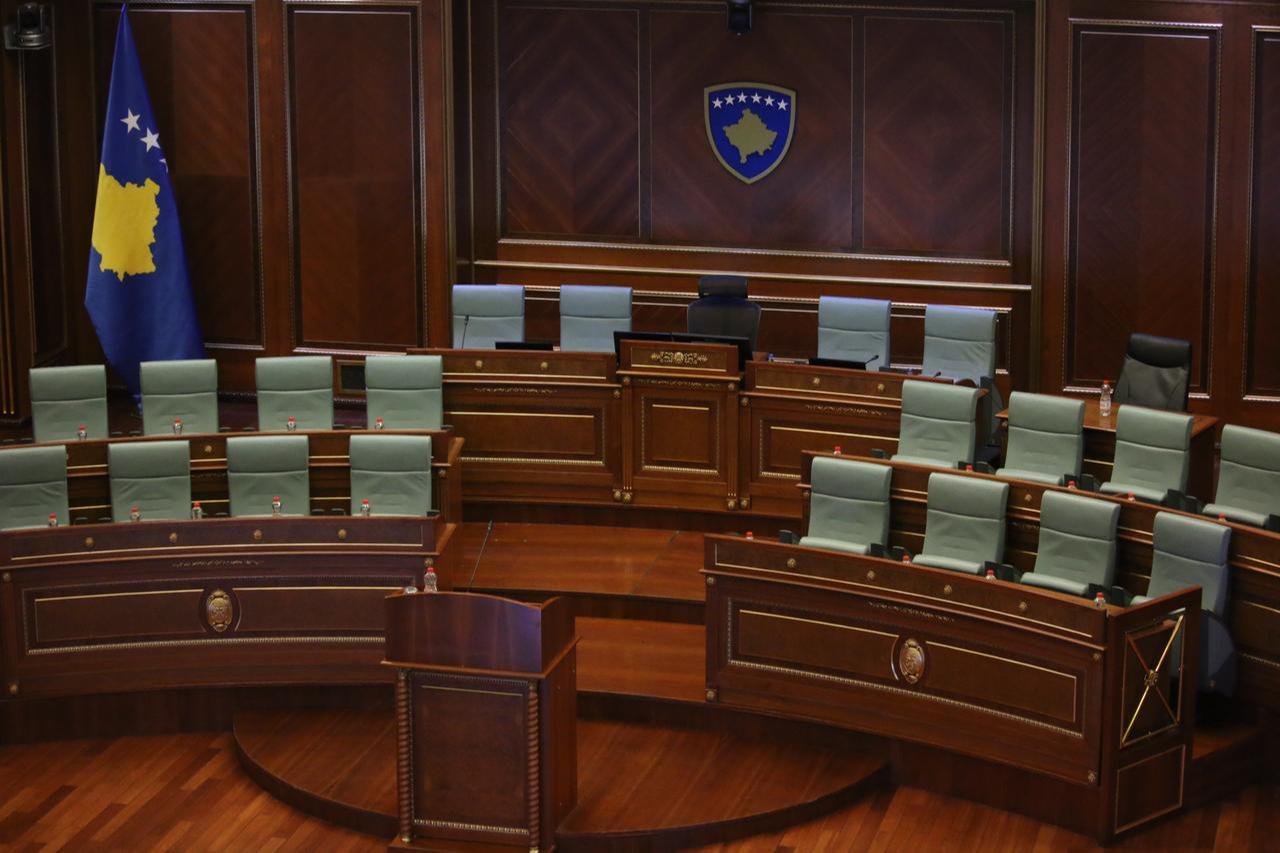
Kosovo President Vjosa Osmani on Tuesday announced that she has given Glauk Konjufca of the Self-Determination Movement (Vetevendosje) the mandate to form a government, after the cabinet proposed by party leader Albin Kurti failed to win a vote of confidence in parliament despite resistance to his candidacy from opposition parties.
Osmani said at a press conference that, in line with previous Constitutional Court rulings, she has tasked Konjufca with forming a new government.
Konjufca has 15 days to submit a cabinet and governing program for parliamentary approval. Lawmakers last month rejected the candidacy of Kurti, a leftist and Albanian nationalist who has served as caretaker prime minister since an inconclusive election last February.
Opposition leaders said after rejecting Kurti’s candidacy on Oct. 26 that they would also oppose Konjufca, a close ally and aide to Kurti, and again called for a snap election.
Osmani said that after the initial government formation attempt failed, she held consultations with political parties to determine a new nominee, but only Vetevendosje submitted a candidate.
Emphasizing the need to restore the functioning of state institutions, Osmani said, “We must make every effort to establish institutions that can at least take important decisions in service to the citizens.”
She added that if a government cannot be formed on this second attempt, new elections will be announced.
Local media report that if Konjufca succeeds in forming a government, Kurti would serve as foreign minister. Konjufca previously served as speaker of parliament and minister of foreign affairs.

Months of political deadlock in Kosovo have stalled reforms, delayed infrastructure projects and frozen some European Union and World Bank funding, slowing the country’s progress toward EU integration.
Osmani appealed to parliament to back Konjufca as prime minister so that the 2026 state budget and several international financial agreements can be approved.
“As president, I have assessed that it is in Kosovo's interest to attempt to form a government so these important decisions are not delayed for several more months,” she said, adding that she would call a snap election if parliament rejects Konjufca.
Konjufca, 44, was nominated by Vetevendosje, which won the most votes in the Feb. 9 general election but did not secure a majority and has been unable to form a coalition.
Opposition parties refuse to join a government with Kurti, criticizing his handling of relations with Western allies and his approach to tensions in Kosovo's ethnically divided north, where a Serb minority lives.
According to official results, of the 100 open seats in the 120-seat parliament, Vetevendosje won 48, the Democratic Party of Kosovo (PDK) won 24, the Democratic League of Kosovo (LDK) won 20, and the Alliance for the Future of Kosovo (AAK)/NISMA won 8. The remaining 20 seats are reserved for non-majority communities.
The formation of the new parliament, which began on April 15, was delayed by disagreements over the election of the speaker and deputy speakers. After the deputy speaker allocated to the Serb community was elected on Oct. 10, the path was cleared to initiate the government formation process.
A new government requires 61 votes in the 120-seat legislature. The cabinet presented by Kurti on Oct. 26 did not secure enough support.
Kurti, who became prime minister in 2021, continues to serve in a caretaker capacity because a new government has not been formed despite the end of his term.
Kosovo declared independence from Serbia in 2008 and has since been recognized by 108 countries, including the United States and Türkiye. Most recently, Syria recognized Kosovo as an independent and sovereign state.
Serbia does not recognize Kosovo's statehood and considers the territory part of Serbia.